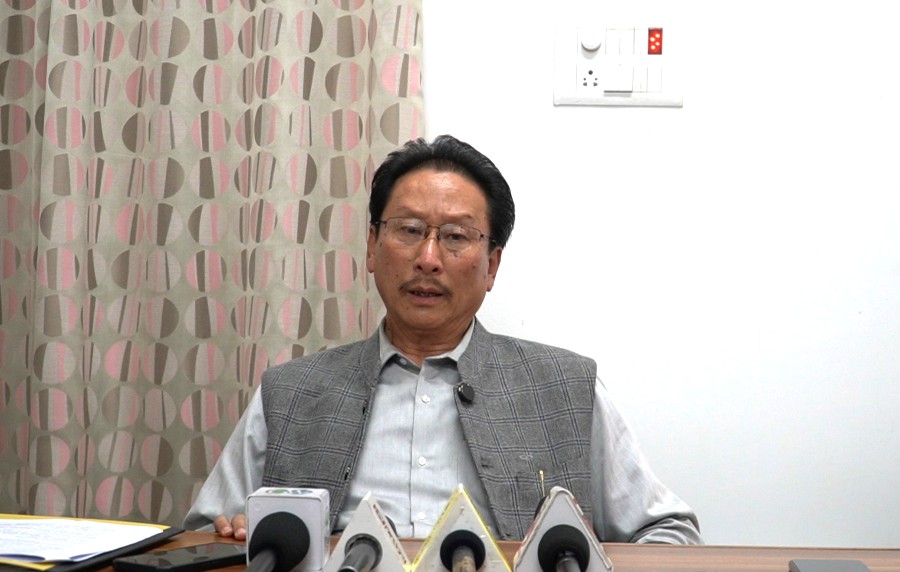Nagaland forms Cabinet sub-committee to review IAS induction row, addressing NPSC entry concerns and procedural lapses.
Share

KOHIMA — Amid the ongoing dispute over the induction of non-State Civil Services (SCS) officers into the Indian Administrative Service (IAS) cadre in Nagaland, the state government on Thursday constituted a Cabinet sub-committee to examine the matter.
Minister for Power and Parliamentary Affairs KG Kenye announced the decision at a press conference following a Cabinet meeting in Kohima. He expressed hope that the step would lead to a peaceful resolution of the issue.
The newly formed panel is headed by Deputy Chief Minister TR Zeliang and includes Deputy Chief Minister Y Patton, ministers KG Kenye and Metsubo Jamir, and Chief Secretary Sentiyanger Imchen. It is scheduled to hold its first meeting on October 20.
Kenye highlighted that there had been confusion regarding whether induction to the IAS cadre should be limited to officers whose entry point was through Nagaland Public Service Commission (NPSC). Further scrutiny revealed several officers in past decades were inducted into the IAS even though their entry was not through the NPSC, he said.
Related: JCC extends pen-down strike indefinitely, exempts teachers from agitation
The minister pointed out that the Joint Coordination Committee (JCC) and other agitating groups had insisted that the NPSC entry point should be the sole benchmark for officers to qualify for adoption into the IAS through the state civil service.
Kenye clarified that, according to IAS Rules of 1954 and subsequent amendments, the entry point is not the primary criterion.
“While the entry point of officers might differ, what counts are their annual reports, service records, integrity, loyalty, ability, commitment, and performance,” he maintained.
WATCH MORE:
Kenye added that other rules require officers to serve a minimum of eight years in a substantive capacity and maintain unblemished records for consideration. Recommendations are first reviewed by the state screening committee and then scrutinised by the Union Public Service Commission before final induction.
He acknowledged that the March 10 notification had become a point of contention, with the agitating parties focusing on Point No. 4, which stipulates that only NPSC-qualified officers should be eligible.
He said that the Cabinet, after deliberation, found that certain procedures had not been properly followed, including a failure to notify the chief minister, who is also minister-in-charge of Personnel and Administrative Reforms. Consequently, the previous circular was cancelled, and a revised one was reissued.
Referring to the agitating parties, Kenye said, “Unfortunately, they also should have brought it to the notice of the government as and when they felt that certain procedural lapses were being practised over the years. But at no point in time, as far as we have noticed, has the practice of inducting officers from other services and not through the NPSC been entertained in the past.”
Kenye said that the practice was neither proposed nor brought to the notice of the Cabinet or preceding governments, including the present one. “All of a sudden, when the previous practice was being attempted, the realisation might have dawned on some people that this should be discontinued, and without proper discussions, they resorted to agitation, which is not well taken,” he added.
The minister said that any grievances should be raised for amicable resolution rather than through sudden agitation. He asserted that induction policy is a Cabinet decision, and any change in practice requires formal policy approval, not unilateral executive or bureaucratic action.
He also cited examples of officers inducted into the IAS from non-SCS backgrounds starting from the 1970s and clarified that IAS rules and Department of Personnel and Training (DoPT) guidelines do not mandate competitive exam entry through the NPSC.
Instead, they focus on APAR and other evidence, which is a practice followed nationwide, he reiterated, adding that Nagaland does not have its own specific rules.